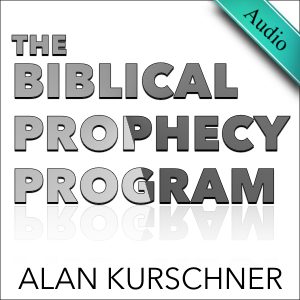Podcast: Play in new window | Download | Embed
 I talked about the pervasive emotional attachment that many pretrib believers have toward the notion of of imminency. I also read a pertinent selection from S. P. Tregelles’s The Hope of Christ’s Second Coming on sentiment and emotion.
I talked about the pervasive emotional attachment that many pretrib believers have toward the notion of of imminency. I also read a pertinent selection from S. P. Tregelles’s The Hope of Christ’s Second Coming on sentiment and emotion.
“Perhaps today!” is the expression that many of us have probably heard as children if you grew up in a Christian home. As a child doing something wrong the notion that Jesus could return at that “moment” could be frightening. Many of us were told that we needed to confess our sins before we fell asleep that night, lest Jesus came back in our sleep. In Sunday School we were taught that Jesus is at the door and he can open it “at any time.” As a teenager I would frequently hear sermons at youth conferences warning, “What if Jesus came back while you were at a movie theater?” In short, the idea that Jesus’ return is imminent is stock language in many denominational circles, some more than others.
This looming axiom is intended—successfully or not—to prepare us to meet Jesus. But is it true? Is it what Jesus and the biblical writers actually taught? We all know that if something is repeated enough it becomes accepted as if it is true, even unquestionable! But sometimes we do have to step back and reexamine our traditions. As Christians we should not be afraid to do this. If it is God’s truth, then it will be shown to to be truth. If something is true and we have biblically challenged it showing that it is truth, we will be even more confident than we were before. However, if we never challenge an entrenched traditional belief that we possess that in reality is false, we will continue to believe a falsehood—and not knowing it is false. In short, the Bible teaches us that we need to be Bereans who “were more open-minded than those in Thessalonica, for they eagerly received the message, examining the scriptures carefully every day to see if these things were so” (Acts 17:11).
I understand that we can have emotionally attachments to particular biblical teachings from our youth. Perhaps our heroes of the faith hold to imminence, or even our pastors and family members. But we must not fall into the fallacious mindset of “If they are wrong on imminence, then what else are they wrong on?” No one consistently has perfect doctrine, even your pastor or theological hero. That does not mean that you begin to doubt everything they ever taught you. It is not either or: They have to be perfect in every doctrinal point or they are wrong on every point. We have to practice the maturity to distinguish emotional attachments to our tradition from what is genuinely God’s truth. We need to frequently examine our traditional beliefs with much prayer, reliance on the Holy Spirit, and sound biblical interpretation. After all, don’t we want to believe what is true? It is spiritually healthy to do so.
We are living in an increasingly irrational, non-thinking, even anti-thinking society. Emotion, feelings, sentiment rules the today. Black is white, white is black. Evil is good, good is evil. What feels right, is right. What I want to be true—is true! Who are you to say what is right and wrong. It is the consequences of decades of post-modern thought affecting all aspects of life. And sadly, it has also contaminated much of the way the church thinks about the truth of God revealed in his Word. Theological affirmations for many believers is true only if it conforms to their feeling and cultural norms.
In the past two decades that I have been interacting with pretribulationists—both layperson and educated—I have observed that many of them affirm imminence out of sentimentality having emotional attachments for one reason or the other. They affirm imminency, because they want it to be true. Indeed, wanting something to be true is not a bad thing in and of itself. But the impression I have been given over the last couple of decades—and I have interacted with innumerable pretrib believers!—is that the emotion for imminence to be true comes first, then if pressed to give evidence for this, they will cite the aforementioned proof texts to support their sentiment for their tradition. I know this to be the case, because of their emotional arguments as if I had just undermined their Christian faith! “You are stealing my blessed hope.” “You are threatening my readiness for Christ’s return.” “Jesus would never put his Bride through an awful time.”
One of the most noted Greek scholars of the nineteenth century was the English Samuel Prideaux Tregelles (1813–1875). When pretribulationism emerged he challenged the “secret rapture” view head on in 1864 writing his The Hope of Christ’s Second Coming. This classic little book is still worth reading today filled with nuggets in every chapter. One of the chapters included in his book is “Sentiment and Emotion: The Truth of God.” It is devoted to the danger and folly of accepting the “any moment” teaching because of how one feels. That is not how we recognize the truth of God. Because his chapter speaks so well to this emotional argument for imminence, I selected a few portions to read for the program.


